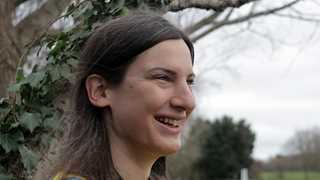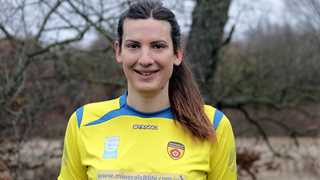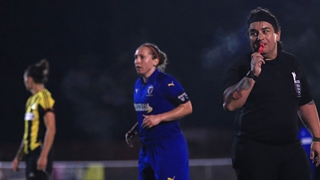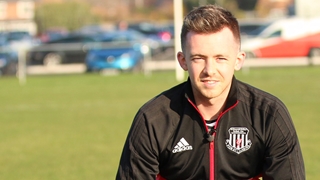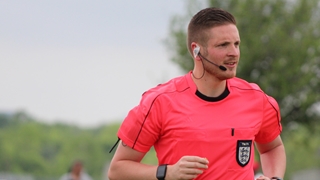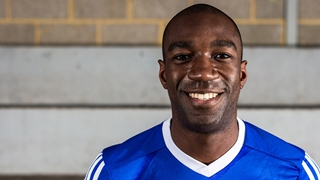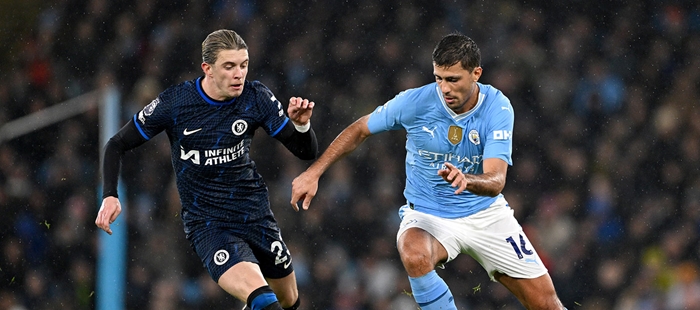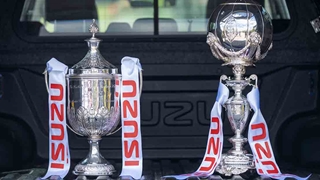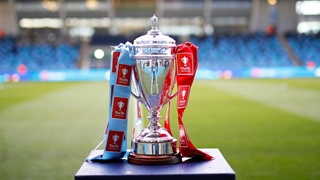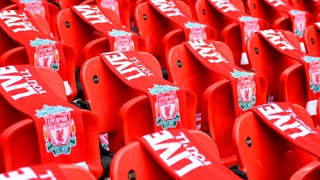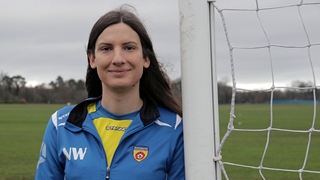
I can still remember the moment.
I’d scored my first goal for two or three years and the celebrations were pretty big. It felt like I was part of a team again, something I’d been missing.
It was January 2017 and my first game for Rushmoor FC in the Hampshire League division one, the first game since I’d had permission to play in women’s football, and shortly before taking six months off for genital reconstruction surgery.
We actually lost the game and I had a fairly lousy match but when I scored a scrappy goal, essentially from the goalkeeper’s clearance, after just five minutes of my debut, everyone on the team got that it was a big thing for me and that felt really good.
I’m in my second full season now and it’s been really good. I first joined the team to train in 2015, just after the Women’s World Cup in Canada, and we’d only had a women’s team for a short time then.
But everyone was still really welcoming and I was just treated as though anyone else would be. It made a lot of difference to me in terms of feeling like I was accepted.
It’s easy to exclude yourself or feel excluded from a team or activity, so it was nice to have that and there must be something right at the club in terms of inclusivity because since then, we’ve now got two teams and enough players to form a third team for next season as well.
Previously, I’d played men’s Sunday league football in Camberley, but I’ve never played at a high level and threatened the semi-professional ranks or anything like that.
I only really started to play competitive football when I was 20 or 21 and even though I liked the game as a child, I’d never really played it too much in terms of being in a team or organised football.
I played in men’s football until I was about 28 or 29 when I stopped as I knew I was going to transition.
I told a couple of people in the team about my decision, those I was closest to, but I didn’t tell the whole team in general. I just said I was finishing at the end of that season and didn’t tell them why.
They all found out later when I properly came out, most of them were fine about it all and some didn’t really know how to react.
One guy even said: ‘I always knew it!’ but I wasn’t sure that he did!
I thought that would probably be it for me and football though, as even though there was a policy at the time for trans women to play women’s football, it was quite demanding.
But I always knew I would get there eventually, even though it might be by the time I was in my late 30s.
Thankfully, it was far quicker than that and now the attention has died down a little.
At first, people were perhaps a little unfamiliar with it, even though there has always been trans players. I certainly wasn’t the first and there were plenty of people before me.
But for a lot of people I played with and against, they hadn’t encountered trans women and, to be honest, they’ve been absolutely fine and just got on with it and people have been really supportive.
There have been a couple of difficult games, there was one in particular where I got targeted both verbally and physically. I couldn’t say entirely why it was, but the language some of them were using, my ankles being kicked constantly and the elbow in the face gave it away.
The special moments outweigh the bad and the first time that I played against another trans woman was a nice one for me.
What was funny is that against the backdrop of all the stuff people were saying about it not being fair for trans women to compete in women’s football because we have an unfair advantage, we were both on the bench that day.
We shared a knowing glance though, and it was lovely that we were both able to play.
There have been a few people who spoken to me since I started playing too, which is nice. I’m on the committee that runs Trans Pride in Brighton and last year someone approached me there to say they’d seen me talking about it on YouTube and it had really helped them to see other people doing it and given them confidence that they could too.
I’ve also spoken to a trans guy, and it’s a different situation for trans men, who approached me and he said having this visibility has helped him and also some cisgender people who have said they’ve learned a lot through it.
With regards to the future, I have thought about coaching and although it’s not something I’d thought of when I was younger, I am 35 now so I would like to do some form or coaching or administration of the game in some way.
I think it’s important that other trans people are able to see role models out there involved in the game and they don’t feel like they’re the first.
We need to maintain visibility and representation so that people don’t feel as though they have to be the first as that can be daunting and keep them away.
And as the support and messages that I’ve had prove, there should be no reason for anyone to feel like that.


